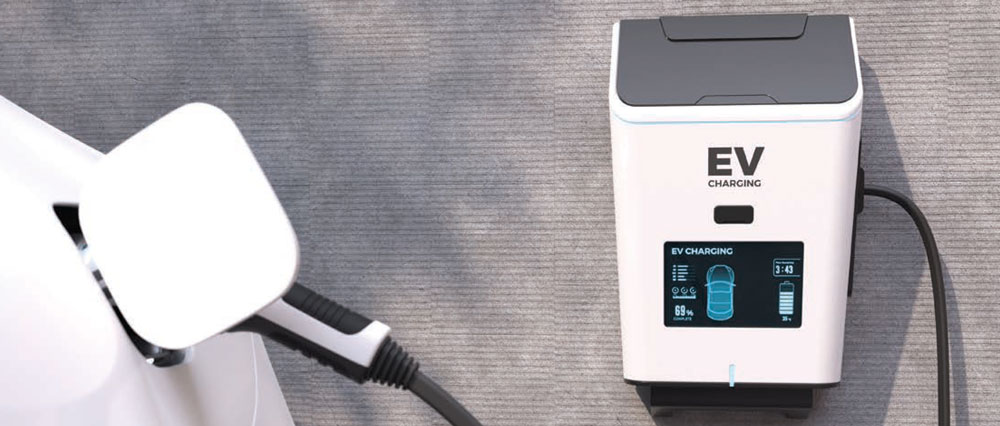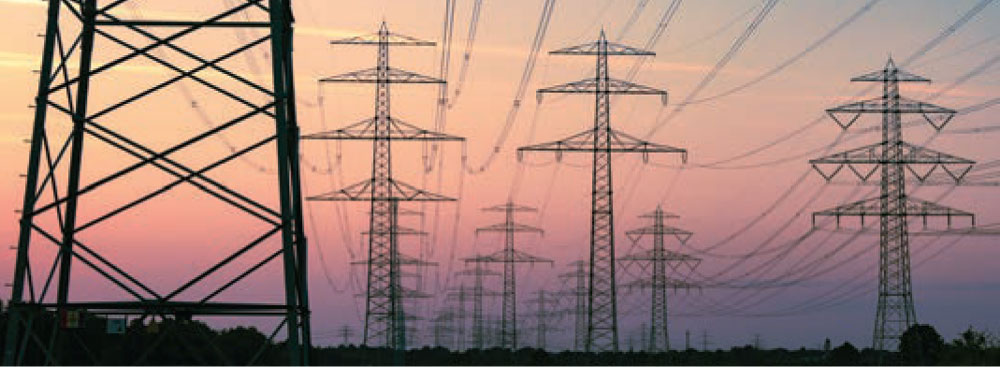AMPED UP

Equip Your Home for EV Charging
With the steady growth in the number of hybrid and all-electric cars, trucks, vans and SUVs being offered by U.S. and overseas automakers, more and more vehicle buyers will be considering whether “juice” from the power grid should replace all or part of the gasoline they’ve been purchasing.
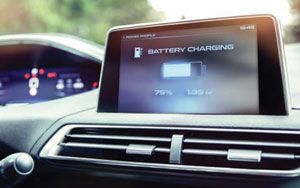 Just imagine: Pull into the garage, connect the car to the on-wall charging station and head inside. A few hours later, your ride will be “fueled” and ready to go. With essential EV components working seamlessly to deliver an 80- to 330-mile full-charge range (depending on make and model), an all-electric vehicle (EV) is more than adequate for most Americans’ daily driving needs – estimated at just 30 miles by AAA.
Just imagine: Pull into the garage, connect the car to the on-wall charging station and head inside. A few hours later, your ride will be “fueled” and ready to go. With essential EV components working seamlessly to deliver an 80- to 330-mile full-charge range (depending on make and model), an all-electric vehicle (EV) is more than adequate for most Americans’ daily driving needs – estimated at just 30 miles by AAA.
For that vignette to play out, however, drivers must be able to charge their EVs at home between trips. EVs typically come with a charging cord that can be plugged into a standard 120-volt outlet. But for the faster charging times that most EV owners prefer, their garages must be equipped with a Level 2 charging station – hardly a DIY task unless one happens to be a master electrician. If your garage needs a new garage door, you may need to hire a contractor from companies like Mr Garage Door to ensure that it will be installed properly.
Time to call in the experts
Lynchburg’s Wired Up Electrical is one company that can provide the materials and know-how necessary to get the amps flowing.
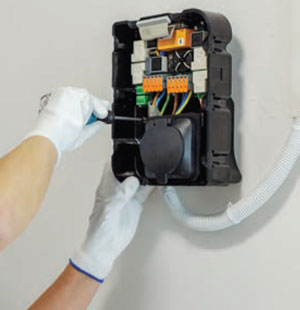 The cost for running that line and installing the appropriate outlet (or, in the case of some higher-end EVs, hard-wiring the charger into the circuit) averages about $500, but is highly dependent on the distance between the nearest main electrical panel and the charger. Accessibility for snaking the wiring from your main service panel to your garage can also be a cost factor. Visit sites like https://www.callthegeneral.com/electrical/ or https://teslaelectriccolorado.com for additional guidance.
The cost for running that line and installing the appropriate outlet (or, in the case of some higher-end EVs, hard-wiring the charger into the circuit) averages about $500, but is highly dependent on the distance between the nearest main electrical panel and the charger. Accessibility for snaking the wiring from your main service panel to your garage can also be a cost factor. Visit sites like https://www.callthegeneral.com/electrical/ or https://teslaelectriccolorado.com for additional guidance.
Preferring to avoid any fire safety issues from charging his Tesla indoors, Timberlake resident Bill Shafer recently hired Wired Up to install a 240-volt outlet adjacent to his garage. “I’m hearing enough reports of battery fires during charging that I just wanted to be extra cautious,” Shafer said.
If you’re building a new home or adding a garage, you may wish to include an outlet for plugging in a level 2 charger as part of your basic wiring plan, Wired Up’s King says. “Even if you’re not driving an EV now, it’s highly likely there will be one in your future. It’s cheapest to get the wiring and outlet in place during your build so you can simply mount and plug in any brand of 240-volt charger when the time comes.”
Super-fast chargers, like those typically found at commercial roadside charging locations, require 200-400-amp circuitry. Charging time goes way down, but cost for the installation increases considerably.
Lead time for getting a charging circuit installed typically runs 2-3 weeks from the time an estimate is approved, King says. “We’ll come out and do a free estimate, but customers who have decided on an electric or hybrid vehicle are often in “whatever-it-takes” mode and are eager to get the job done as soon as possible.”
Special rates for EV charging may be available
Some electricity providers in our area are offering discounts of up to 15 percent for EV charging that occurs during off-peak hours, usually 8 p.m. to 6 a.m., plus weekends and holidays. Danville Utilities also offers customers registered for their time-of-use rate program a $200 rebate on approved Level 2 chargers; AEP rebates $100 to customers who purchase ENERGY STAR-certified charging equipment. Dominion Energy customers earn discounts by participating in a program that limits charging availability during periods of high demand. Participants use an app to “opt out” of the limitation up to 45 times a year. Check with your energy provider for details on these programs.
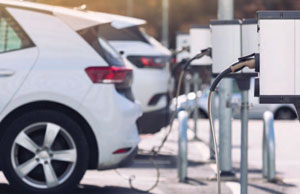 Is an EV right for me?
Is an EV right for me?
It depends. Car buyers should consider their own driving patterns when making that decision. Plug-in EVs are costly, with luxury models from the most respected brands commanding well over $100,000 when new. Economy-priced models are available, however, and advances in battery technology are steadily improving range, performance and longevity. EV batteries are typically covered by warranties lasting up to 100,000 miles.
The cost of installing home-charging capabilities should be rapidly offset by lower operating costs: AEP cites typical annual gasoline costs for driving a full-sized vehicle 12,000 miles, at average $3.59/gallon, to be $1,346. In contrast, an EV that gets charged at their off-peak rate will require only $422 in electricity.
Drivers who want to use EVs for road-trip travel may need to plan for necessary recharges along the way. Charging stations are becoming increasingly common at hotels/motels, rest-stop retailers and auto dealers as EVs become more popular, and apps are available to help you find recharge locations along the way. EV enthusiasts, it seems, rather enjoy doing the planning necessary for an extended drive. ✦
240-volt outlet, all-electric cars, full-charge range, hybrid, Level 2 charging station, on-wall charging, SUVs, trucks, vans
